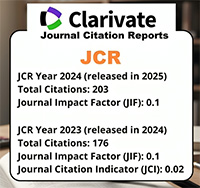Minocycline, but not ascorbic acid, increases motor activity and extends the life span of Drosophila melanogaster.
Abstract
In the present study we compared the effects of minocycline and ascorbic acid in the life span, motor activity and lipid peroxidation of Drosophila melanogaster, in an effort to find a substance capable of providing protection against oxidative stress in aging. In the flies treated with minocycline a very significant increase in the life span (101 Ó 1.33 days) was observed when compared to those treated with ascorbic acid and controls (42.3% and 38.4%, respectively). The motor activity of minocycline treated flies also increased significantly with respect to control and ascorbic acid fed flies, from the 3rd to the 9th week of treatment. With regard to lipid peroxidation, it was found that the levels of malondialdehyde (MDA) in flies treated with minocycline showed no statistical differences to the control on the first day of treatment, but a significantly lower content on the day of 50% survival. In contrast, in flies treated with ascorbic acid significantly elevated levels of MDA compared to control and minocycline treated flies were detected throughout. These results suggest a protective effect of minocycline against oxidative stress and aging in D. melanogaster. An inhibitory effect on reactive oxygen species production may be an important contributing factor.





















